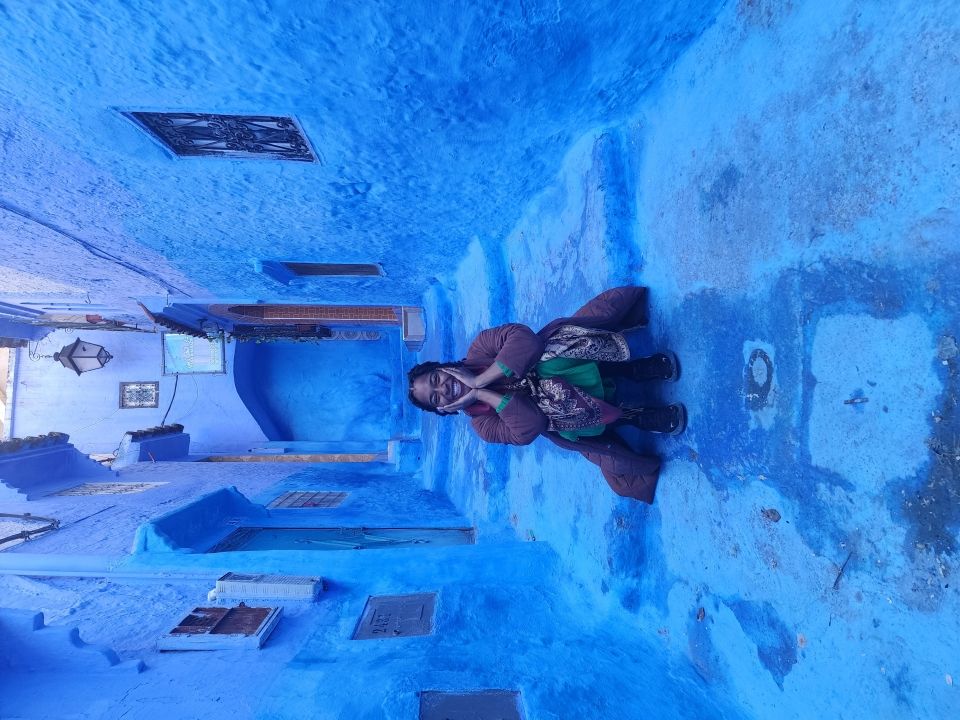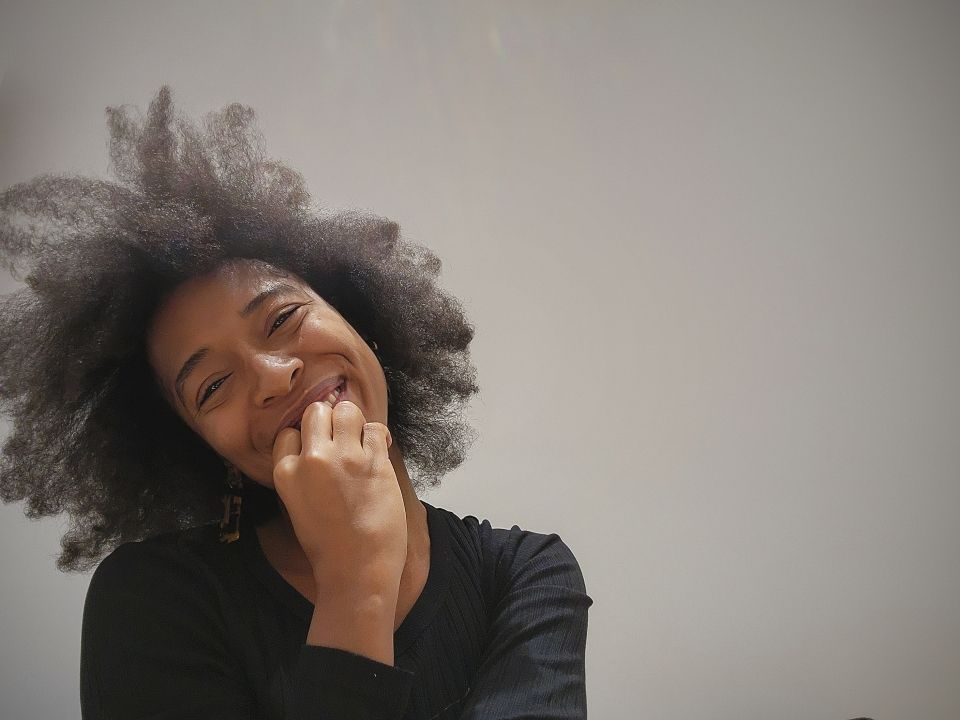Melanated and In Madrid: My Experience as an African American in Spain
As a brown skinned African American woman teaching English in Spain, I was very well aware of what I may or may not come up against when I moved to Europe. Some things I expected, others things were subtle and unexpected, and some were a complete shock to me.
My Assumptions Before Teaching English in Spain
Spainard's Immediate Assumption You're African and Not African American
I expected European onlookers to assume that I am African because at the end of the day I am African American. Because of this assumption I assumed that many people would automatically start speaking to me in English. However the majority of people speak to me in Spanish with the assumption that I am from Africa.
Granted this may be also due to the fact that Spain's grasp on the English language is not as strong when compared to other European countries. But nonetheless It is only when asked "where are you from?” do I tell them that I am from the United States which in general, the response has been positive.
During the first week of school I had to do a presentation about myself and in the presentation I mentioned that I am African American. I explained that my ancestors came from Africa but that was a long time ago and I was born and raised in America.
Well meaning and innocent kids more than once asked me where in Africa. Without bringing up the trauma and injustices of slavery I kindly said that I do not know. But that wasn't enough, persistent and not satisfied with my answer, one kid asked repeatedly “but where?” It was only by the grace of the teacher that I was saved and spared having to bring up why all my heritage and history has been lost.
I expected the kids to not understand why I did not know where I am from specifically in Africa. I am not so vain as to believe that kids in Spain are taught African American-History. Because I myself was not taught all of Spanish History.

Boundaries Regarding Personal Space and Bodily Integrity
Another interaction, of course, had to do with my hair. Culturally, African American women change their hair a lot. It is a form of expression. It is usually changed into low maintenance hairstyles, and it's fun!
Although there are a decent amount of people of color in Madrid, including African women with braids, twist, and weave, I was hoping that coming to work with a similar hairstyle would not be such a shock. But during my first month of school, two very sweet and innocent girls came up and touched my hair and asked “Is this your real hair?” or said “Your hair is so pretty”.
Now to anyone who knows nothing about the historical and cultural indications for why this is a big no no, lets just take this down to basic human respect. Which I did for each of the girls.
I politely asked them:
“Where is my hair attached to?”
“Your head”
"Is my head attached to my body?"
"Yes"
"Then shouldn't you ask permission to touch my body?"
"Yes"?
After that line of reasoning they all let go and apologized. With puppy dog eyes filled with remorse. Of course I do not want to make any kid sad. But silencing my discomfort in order to be liked or to maintain peace comes at too high of a personal cost. I am here to assist in teaching English but also to teach them about my culture.

My Realites After Arriving in Spain to Teach English
Racism and Social Interactions in Spain as an African American Woman
After having a variety of conversations with strangers in different social settings, I realized that most people are speaking to me just because. There is no racially charged hidden agenda or defense that I have to be prepared to use, unlike in the USA.
I didn't realize that I always had my guard up to defend my color and my right to exist until I entered a country where for the most part racism isn't as intense. Once I had this realization my shoulders began to relax a little more, my smile widened a little bit more, and honestly I felt a little bit more comfortable in my skin.
Granted it is not all rainbows and butterflies. In general Spanish people stare, not to be rude, but it is just part of the culture. However, I do notice more than I would like people staring at me for longer periods of time. When this happens I smile, stare back, or sheepishly look to the side. Also when it comes to positions of power or professional jobs such as police officers, teachers, bankers, doctors, or on the TV, you rarely see people of color. Having grown up in a similar environment. When people of color are not in these positions it sends a subtle and unwelcoming message.
Public Discussions of Controversial Topics in Spain
In October I did a tour on the Spanish Inquisition in the city center of Madrid and I was pleasantly surprised to see that my tour guide was an African American male expat. His humor reminded me of home.
However when I looked at the participants in the tour the majority of the participants were foreigners. Without further adieu my tour guide began with a comedic but all too true introduction of Spanish culture “Spaniards dislike and sometimes refuse to talk about four things: The Spanish Inquisition, racism, colonization, and Franco”.
I am not someone who looks to have controversial conversations but my curious nature tends to lead me to them. When it comes to talking about racism and colonization I have found it to be extremely difficult to find Spaniards to talk about it. In general I have been met with the response of “it is in the past so let's leave it there” mentality or I am met with the feeling of causing offense for inquiring.
The Strong Sense of Nationalism in Spain
Spaniards surprisingly also have a pride that can be slightly confusing. This is best described by the National Holiday, October 12th. On October 12th all of Spain celebrates Día de la Hispanidad (Spain). Which is the celebration of when Christopher Columbus first landed in the Americas.
Another translation of this day is celebrating the spread of Spanish culture. On this day everyone is off from school and work. There are fighter jets in the air, parades, and tons of festivities. Now it may be my cynical American mindset but this, in my mind, does not translate to something that should be celebrated. The spread of Spanish culture, or better said, the manner in which Spanish culture was spread, seemed to be an odd thing to celebrate.
Granted I completely understand why the perspectives are different. I come from the United States of America which were a group of colonies that fought for freedoms against their colonizer. Along with my own African ancestors who were enslaved under colonial rule. It is understandable why I am so pessimistic. However, it is only since I’ve come here and specifically on this day, have I been met with positivity and pride around colonization. Which led to an internal question of the history that they’re taught and the history that I have been taught.
My Personal Takeaway of Teaching English in Spain as an African American
In general, moving to Spain as a woman of color has not left me feeling unsafe or completely unwelcomed. But with all things when moving to a new country where you may stand out for any reason, there will be cultural shocks and epiphanies made.
When those moments happen my best advice is to sit in the discomfort, figure out why you are uncomfortable, and if it's something you can change without changing who you are then do it. I can not change my skin color nor would I want to. If people have a problem with minorities or people of color in this country, then that’s what it is, their problem.
I refuse to be bitter about any prejudices that I am met with while living abroad but instead hope that this journey will make me a better person, in whatever sense that may be.

Related Posts
The Ultimate Café Guide to Madrid
Looking for the best coffee shops in Madrid? This guide covers top spots for specialty coffee, matcha, delicious brunch, and cozy vibes—perfect for anyone craving quality drinks and Instagram-worthy interiors. Whether you're a local or visiting, these must-visit cafés offer the ultimate Madrid coffee experience.
Not Just for Business: Why Your Trip Needs a Mission Statement
If you're seeking deeper meaning and fulfillment in your travels, creating a personal travel mission statement can help guide your journeys with purpose. By aligning your trips with your values, goals, and vision for growth, you transform travel from simply visiting places into a powerful experience of connection, learning, and inspiration.
Wish You Were Here—Wish I Were There
Not a day goes by that I’m not deeply grateful for the incredible experience of living in Spain. From weekend adventures to the thrill of navigating a new culture, it’s... keep reading

